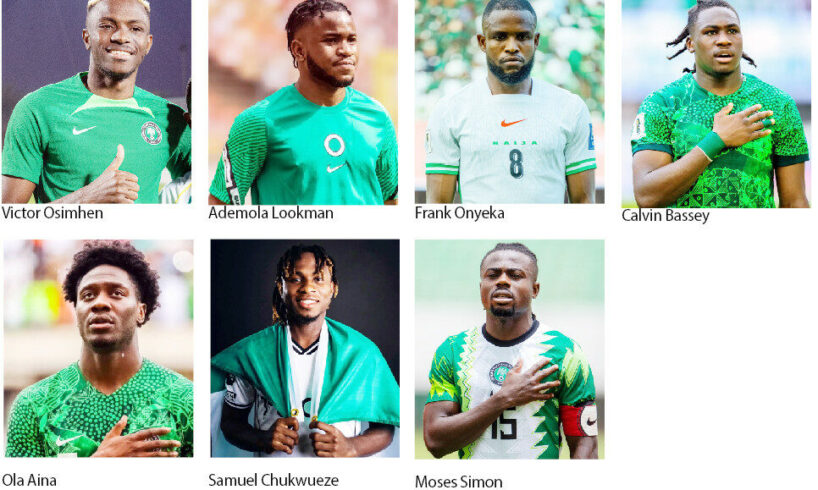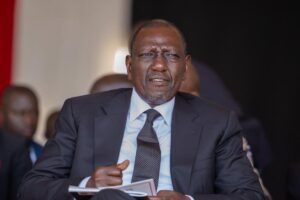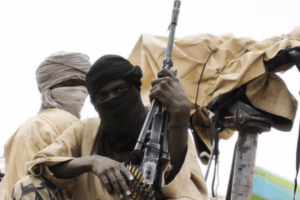
The final whistle in Rabat echoed more than just the end of a football match—it signaled the heartbreaking collapse of a generation’s dream. On November 16, 2025, Nigeria’s penalty shootout defeat to DR Congo extinguished the Super Eagles’ hopes of qualifying for the 2026 FIFA World Cup, marking their second consecutive absence from football’s global showcase .
For a nation that had become a World Cup staple since its dazzling 1994 debut, this failure represents more than a temporary setback—it potentially signifies the permanent closing of a window for an entire cohort of players who have represented Nigeria with distinction but may never grace the world’s biggest football stage.
The irony is particularly bitter considering this generation is widely regarded as one of Nigeria’s most talented on paper, featuring stars who have excelled in Europe’s top leagues yet couldn’t replicate that success when it mattered most for their national team.
As the dust settles on this devastating defeat,AFFA ACHO, examines the exceptional Nigerian players whose careers now risk the unfortunate distinction of never experiencing World Cup football.
To understand the magnitude of this failure, one must appreciate Nigeria’s storied World Cup history. Since their memorable 1994 debut in the United States, where they burst onto the global scene with a thrilling run to the knockout stages, the Super Eagles had become continental regulars at the World Cup.
Over the span of nine tournaments between 1994 and 2018, Nigeria qualified for six editions, making the round of 16 on three occasions (1994, 1998, and 2014) . This consistent presence established Nigeria as Africa’s most reliable World Cup representative, with their vibrant style of play and iconic green kits becoming familiar sights to global audiences.
The expanded 2026 tournament, with 48 slots instead of 32, was supposed to make qualification more accessible than ever for African nations . Instead, Nigeria’s failure to secure one of Africa’s nine automatic places—followed by their playoff collapse—has raised alarming questions about the direction of the country’s football.
This context makes the personal stories of the players affected even more poignant, as they’ve fallen short during what should have been their most straightforward path to World Cup glory.
The current Nigerian squad contains only four survivors from the 2018 World Cup in Russia: William Troost-Ekong, Wilfred Ndidi, Alex Iwobi, and Chidozie Awaziem
The remainder of the squad, despite their talents and European successes, now face the grim reality that they may never compete on world football’s ultimate stage. What makes this particularly devastating is that many of these players are approaching or have already entered their prime years, with most likely to be past their peak when the 2030 tournament arrives.
Victor Osimhen
At the heart of this tragedy stands Victor Osimhen, the Galatasaray machine who represents perhaps the most devastating individual case.
Osimhen will be 31 when the 2030 World Cup kicks off, theoretically still in his prime, but his physical style of play and injury history create legitimate questions about how well he’ll age.
Without the global platform his talents deserve, his legacy risks remaining incomplete, joining the unfortunate list of great players who never showcased their abilities on World Cup football’s ultimate stage.
Ademola Lookman
After his spectacular Europa League winning goal for Atalanta announced his arrival as a player of European stature, Lookman’s direct running and goal threat offered Nigeria a potent weapon in wide areas. His prime years align perfectly with the missed 2026 tournament, making this absence particularly poorly timed for his development. Lookman will be 33,when the 2020 World Cup comes around,it is yet to be seen if he will still be in contention for a call up to the Super Eagles, due to loss of form, age or new players who will have come through the ranks.
Frank Onyeka
The Brentford midfielder who is already 27 years old will be 32,when the 2030 World Cup begins,it is very unlikely that he will still be in top form, due to age and other factors.And may likely not taste World Cup action
Calvin Bassey
The powerful defender emerged as a modern center-back comfortable in both defense and buildup play during his time at Ajax and now at Fulham. At 25, Bassey might theoretically have another cycle in him, but the unpredictable nature of international football offers no guarantees .
Ola Aina
Ola Aina is 29 years old already, the Nottingham Forest versatile defender has been plagued by injuries during his career.He may likely not be a part of the national team set up in 2030,due to fitness, age and younger replacements who will don the Super Eagles jersey in years to come.
Samuel Chukwueze
At 27 Samuel Chukwueze is in his prime,and may most likely miss out on the 2030 World Cup. His injury issues and inconsistency will be a big factor that will rule him out of the mundial in 5 uears time.
Moses Simon
The Paris FC winger is 30,by the time the 2030 World Cup kicks off, he will be in his mid thirties, effectively ruling him out of the global showpiece.
The true impact of that loss is only now beginning to be felt, We spoke to key figures in Nigerian football to gauge the fallout.
Tolu Ogundeji, a seasoned sports marketer,broke down the numbers with a somber tone. “We are talking about a direct loss of at least $12 to $15 million from FIFA for mere participation,” he stated. “But that is just the seed money. The real loss is in commercial revenue. Sponsorship deals that were being negotiated, performance bonuses from existing partners, and a potential share of the global prize pool—all gone.”
He explained that the “World Cup windfall” is what funds grassroots development, coaching education, and other national teams for years. “This ouster doesn’t just hurt the Super Eagles; it starves the entire Nigerian football ecosystem. We are now in a cycle of catch-up, and it will be a lean four years financially.”
Richard Hinga, a former defender with the defunct BCC Lions of Gboko from the golden generation of the 90s, voiced his empathy for the squad. “People don’t understand the psychological weight these boys carry,” Hinga said. “For a player like Calvin Bassey or Frank Onyeka, this was their prime, their moment to announce themselves to the world. That dream has been postponed for four years, and in football, four years is a lifetime.”
He singled out the senior players as bearing the heaviest burden. “Look at Moses Simon. At 30, he was playing through pain, giving everything for the nation. To have it end like that? It leaves a scar. You see it in their eyes. They feel they have let down their families, their friends, and every Nigerian on the street. This ‘moral hurt’ that striker Akor Adams spoke about is very real; it can affect a player’s club form and their hunger for the national team shirt.”
While the players missed the penalties, many believe the failure was systemic, starting from the top.
Ifeanyi Omonigho Odugo,a renown Abuja based FIFA licenced football agent, pulled no punches. “We cannot lay this solely at the feet of the players. This was an administrative failure. The preparation was inadequate, the logistics often shambolic, and there is a chronic lack of long-term planning. We are reactionary, not strategic.”
He connected the financial and moral threads, highlighting a vicious cycle. “The financial loss means we have less money to invest in proper friendly matches, sports science, and mental conditioning for the players.
This leads to a less prepared team, which increases the risk of failure on the pitch. We break the players’ morale by not giving them the best possible platform to succeed, and then we wonder why they falter under pressure. Until we professionalise the administration, we will continue to have these heartbreaks.”
As the dust settles on Nigeria’s World Cup failure, the players face an uncertain international future. The 2025 Africa Cup of Nations in Morocco offers immediate redemption, but for many, the dream of World Cup participation has likely evaporated forever.Their careers, however successful at club level, will forever carry the asterisk of this unfulfilled potential.
They join the unfortunate ranks of other great African players like Abedi Pele and George Weah whose legendary statuses were established without World Cup platforms.
As Nigeria football undertakes yet another “return to the drawing board,” the clock continues ticking on a golden generation that may ultimately be remembered for what they could have achieved, rather than what they did .
The 2026 World Cup will feature an expanded format designed to include more nations and more stars than ever before.
Yet among the 48 teams and thousands of players, the absence of Nigeria’s Super Eagles and the exceptional players who should have led them will remain a conspicuous void, a reminder of talent unfulfilled and dreams deferred beyond reach.





